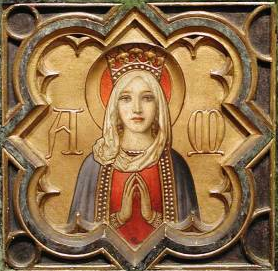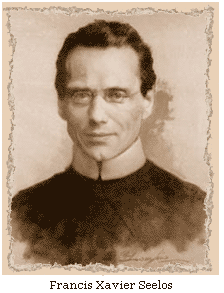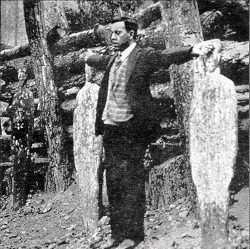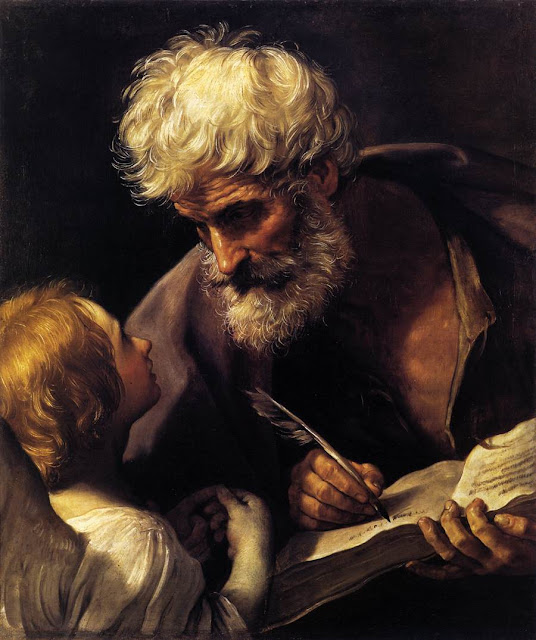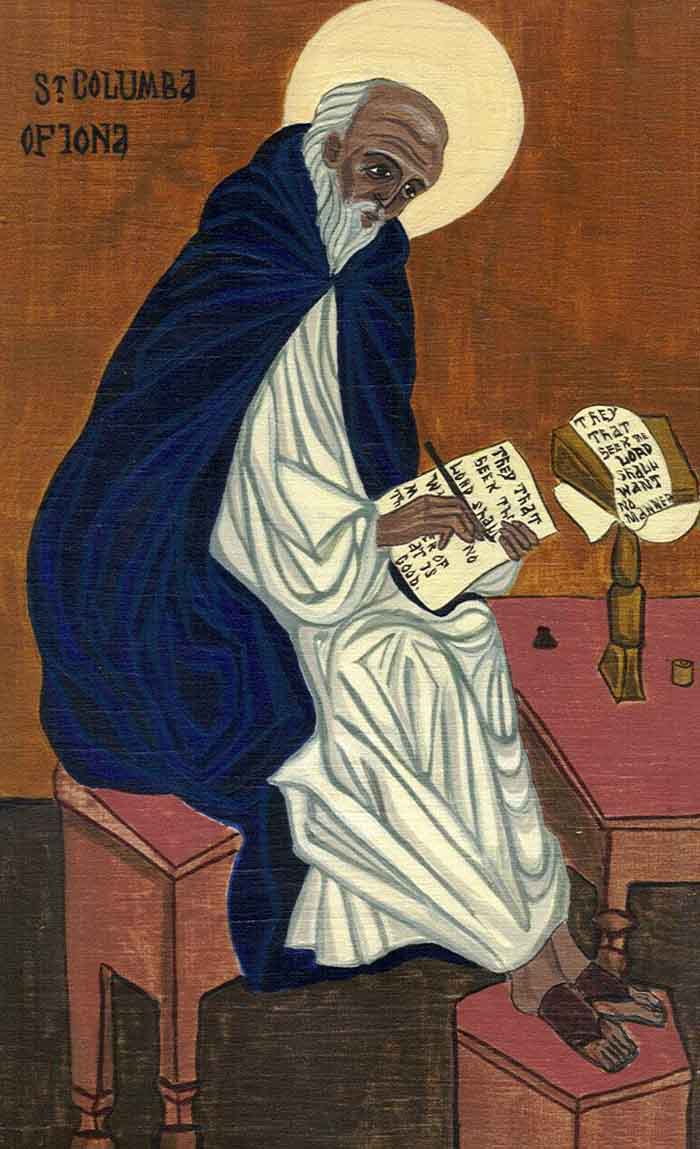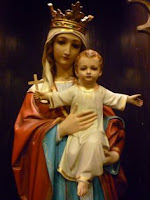+
During the Octave of the Feast of St. Anne, I always sit down to read again the story of the miraculous finding of her holy relics by Emperor Charlemagne. My favourite Church in the world is St. Anne's Catholic Church in Jerusalem, a church with a most marvellous acoustic for bearing aloft the sung praises of God and the worship due His Name. But this story today takes us to southern France during the reign of the great Emperor Charlemagne. He was greatly devoted to St. Anne and even had her image embroidered upon his coronation robes. If ever a monarch were to discover the resting place of St. Anne's relics due to personal devotion, Charlemagne was that king.

There are several accounts in English of the discovery of the relics of St. Anne, the Grandmother of the Lord, by a disabled child in the company of Charlemagne. They all derive from a record kept during the reign of Pope St. Leo III. One such account may be read on Dr. Taylor Marshall's blog here. Also, there is a splendid new translation by Kathy Pluth of the Office Hymn for the Feast of St. Anne which one can read here. Below I post another version of the story of St. Anne's relics and Charlemagne's involvement in their discovery; this version was made available through a Catholic parish named for the Grandmother of the Lord:
"According to most ancient and uninterrupted tradition, the body of St. Anne was carried to Gaul [a province of the Roman empire which included what are now the countries of France and upper Italy] by the same vessel which carried Lazarus and his sisters there.
"During the first century of the Christian era, these friends of Our Lord were banished from Palestine because of their faith. From their hands St. Anne’s precious remains were taken for safekeeping to the city of Apta Julia, which in our own times is the city of Apt, France. In those stormy days of persecution, it was necessary to hide the relics of the Martyrs and Saints. Consequently, the body of St. Anne was buried in an underground church or crypt. The martyrology of Apt, one of the most ancient in existence, mentions this fact.
"The first bishop of Apta Julia, St. Auspicius, who died before 118, took further precautions to guard this holy treasure from desecration and had the body buried still deeper in the subterranean chapel. All approach to it was carefully concealed till persecutions and invasions should have ceased. For centuries, the
country was repeatedly overrun by hordes of barbarians, and it was only natural that during these agitated years the precise spot where St. Auspicius had carefully hidden his treasure became lost in obscurity.
"After Charlemagne’s decisive victory over the Saracens at the close of the eighth century, peace and security returned to Gaul. It was then that the people began to restore and rebuild the holy places destroyed or desecrated by the invaders. Priests and bishops of Apta Julia began to seek for the exact spot in the deep crypt where St. Auspicius had hidden and walled up the sarcophagus of St. Anne.
"Charlemagne’s first care on his arrival at Apt was to have the cathedral re-consecrated. This took place during the Easter solemnities, in the presence of an enormous crowd of nobles, clergy and people. But there was one cause of sadness amid all the rejoicing, namely, that every effort to find the remains of St. Anne had proved fruitless. A miracle, however, was to lead to the discovery of her resting place, as is related by Charlemagne in a letter to Pope Adrian I.
"Among the young nobles who accompanied their parents on this occasion was John, a lad of fourteen, the son of Baron Casanova, deaf, dumb and blind from birth. People near the boy in the sanctuary remarked that during the services he was carried away by some overpowering emotion.
"With rapt and upturned face he seemed to be listening to voices from above. Presently, he moved toward the high altar, struck with his staff the steps leading up to it and made signs that they should dig there. His persistence caused considerable disturbance amid the solemn rites, but neither the clergy nor the royal guards could quiet or restrain the youth. Charlemagne was deeply impressed. After Mass, he commanded that the excavation desired by the boy should be made.
"The altar steps were removed and a door, closed up with huge stones, was revealed. This was the door of the ancient crypt in which St. Auspicius had been accustomed to celebrate the holy Mysteries and to feed his flock with the Bread of Life. Its size and adornments reminded one of the Roman catacombs.
"No sooner had this door been opened and the flight of steps leading down from it disclosed than the blind boy rushed forward, as if his eyes had been suddenly opened, and led the way into this underground church. Charlemagne now held the boy’s hand and gave orders to keep back the excited multitude. John made signs that they should search farther, and he struck the wall of the crypt, indicating that what they sought lay beyond.
"When the wall was broken down, another and lower crypt was discovered at the end of a long and narrow corridor. As they came in view of this crypt, a bright light flashed upon the Emperor and his assistants. They beheld, in front of a walled recess, a burning lamp, which flooded the place with unearthly splendor. No sooner, however, had the Emperor and his cortege entered this place, than the lamp went out. But, more wonderful still, at that very moment the blind boy could see, speak and hear. “The body of Saint Anne, mother of the Virgin Mary, Mother of God, is in yonder recess,” were his first words.
"The awe-stricken Emperor and his followers, at first dumb with amazement, gave vent to their emotion in words of praise and thanksgiving. The walled recess was thrown open, a sweet fragrance like that of oriental balm filled the air, and a casket of cypress wood was discovered containing the body of St. Ann wrapped round and round with folds of precious cloth. On the casket was the inscription: “Here lies the body of Blessed Anne, mother of the Virgin Mary.”
"Charlemagne, with all those present, venerated the sacred deposit thus brought to light. Afterward he had an exact narrative of the discovery drawn up by one of his notaries and a copy sent to the Pope with the royal letter. This letter and the Pope’s answer are still extant.
 |
| The Holy Relics of Apt Cathedral |
"The miraculous discovery at once made the Cathedral of Apt the center of attraction for Christian pilgrims from every part of Gaul. In the wars which followed the reign of Charlemagne down to our own times, the clergy and people of Apt have watched with never failing love over the sacred treasure which is the glory of their city. Travelers visiting the venerable Cathedral of St. Auspicius will find piles of ex votos, the indisputable testimonies during eleven centuries of the wonders wrought there by Christ at the intercession of His sainted Grandmother. ..."
+

